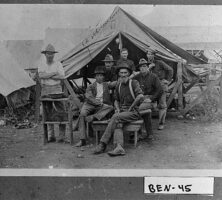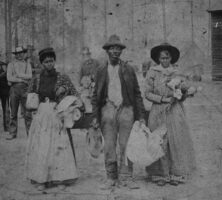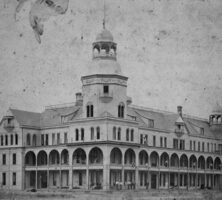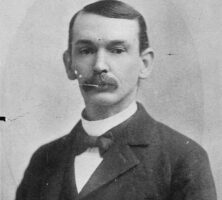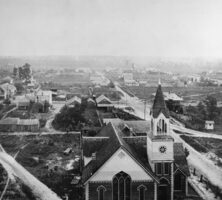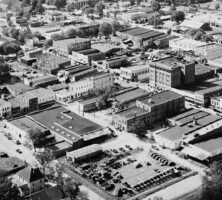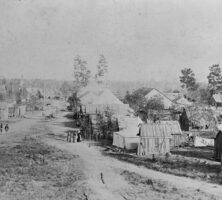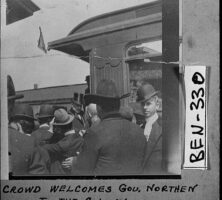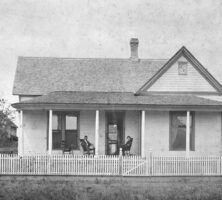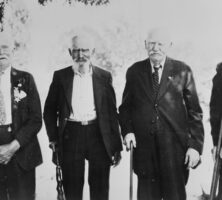Fitzgerald, the seat of Ben Hill County, is located in the heart of south central Georgia, twenty-five miles northeast of Tifton. Settled in 1896 by a land company under the direction of Philander H. Fitzgerald, the town is best known as a place of reconciliation among Civil War (1861-65) veterans.
Fitzgerald, a former drummer boy in the Union army, had become a pension attorney with a thriving practice in Indianapolis, Indiana. His interest in the welfare of his fellow veterans, well documented in the widely read weekly newspaper American Tribune, led Fitzgerald to conceive of the idea for a soldiers’ colony in the South. Georgia governor William J. Northen was eager to settle some of the sparsely populated areas in the wiregrass region of the Coastal Plain, and after some negotiation they settled on the area around the site of the former turpentine village of Swan on the Ocmulgee River.

Early on, the prospect of so many northerners inhabiting the Deep South was a strange concept, but as soon as settlement began, the locals offered their cooperation. An early nickname of Fitzgerald, the “Colony City,” is still in use today. Through this harmony the idea that the town would be a spotlight of post- Reconstruction reconciliation was assured. There was little strife among the new colonists, who proved their dedication to unity by naming an equal number of streets in the city proper for Union and Confederate notables. In one of the first public-works constructions in the United States, a mammoth four-story hotel was built; it was named the Lee-Grant Hotel, to honor the leaders of the opposing sides of the Civil War.
In 1906 the town became the seat of the newly created Ben Hill County, named for prominent Confederate Georgia senator Benjamin Hill. Previously it was located in Irwin County, which was subdivided partly because Fitzgerald was about five times the size of the county seat of Irwinville. Almost immediately there was a model structure of government in the newly designated seat of government. A mayor and council were soon elected, and the city already had in place fire and police protection, infrastructure, and even a utility provider, which was quite rare at the time. The school system was among the first in the state of Georgia to issue free textbooks to students, in 1897.

Much attention was brought to the city through the efforts of Beth Davis, founder and director of the Blue and Gray Museum. The museum hosts a Roll Call of the States, in which visitors from every state in the Union are photographed with their respective state flags. This idea was derived from an early custom in the colony in which representatives of the many northern and midwestern states paraded in unity through the center of town.
The writers Brainard Cheney and Frances Mayes, as well as military leader Raymond G. Davis, were born in Fitzgerald.

Mayor Gerald Thompson, who held office from 1968 to 2011, made the growth of Fitzgerald his life’s work. Through his efforts nearly thirty industries, East Central Technical College (later Wiregrass Georgia Technical College), and services usually expected only in larger cities thrived.
According to the U.S. census, the 2020 population of Fitzgerald was 9,006.












